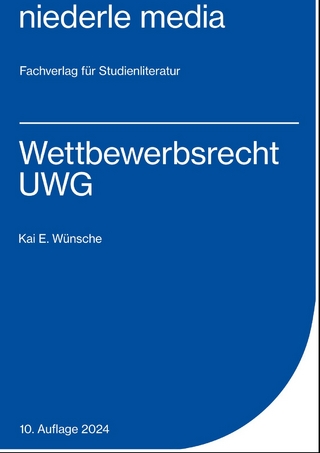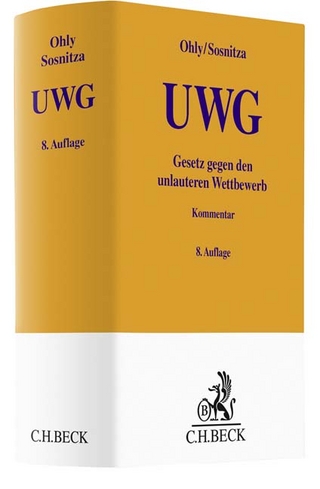
The Design of Competition Law Institutions
Oxford University Press (Verlag)
978-0-19-967004-8 (ISBN)
Competition (or antitrust) law is national law. More than 120 jurisdictions have adopted their own competition law. Is there a need for convergence of the competition law systems of the world? Much effort has been devoted to nudging substantive law convergence in the absence of an international law of competition. But it is widely acknowledged that institutions play as great a role as substantive principles in the harmonious - or dissonant - application of the law.
This book provides the first in depth study of the institutions of antitrust. It does so through a particular inquiry: Do the competition systems of the world embrace substantially the same process norms? Are global norms embedded in the institutional arrangements, however disparate?
Delving deeply into their jurisdictions, the contributors illuminate the inner workings of the systems and expose the process norms embedded within. Case studies feature Australia/New Zealand, Canada, Chile, China, Japan, South Africa, the USA, and the European Union, as well as the four leading international institutions involved in competition: the World Trade Organization, the Organization for Economic Cooperation and Development, the United Nations Conference on Trade and Development, and the International Competition Network; and the introductory and synthesizing chapter by the directors of the project draws also from the new institutional arrangements of Brazil and India. The book reveals that there are indeed common process norms across the very different systems; thus, this study is a counterpart to studies on convergence of substantive rules. The synthesizing chapter observes an emerging 'sympathy of systems' in which global process norms, along with substantive norms, play a critical role. The book provides benchmarks for the field and suggests possibilities for future development when the norms are embraced in aspiration but not yet in practice. It offers insights for all interested in competition law and global governance.
Before joining the faculty of NYU Law School, Eleanor Fox was a partner at the New York law firm Simpson Thacher & Bartlett. She has served as a member of the International Competition Policy Advisory Committee to the Attorney General of the U.S. Department of Justice ('97-2000) and as a Commissioner on President Carter's National Commission for the Review of Antitrust Laws and Procedures ('78-9). She has advised younger antitrust jurisdictions, including South Africa, Egypt, Tanzania, The Gambia, Indonesia, Russia, Poland, and Hungary, and the common market COMESA. Fox received an honorary doctorate degree from the University of Paris-Dauphine (2009). She was awarded an inaugural Lifetime Achievement award in 2011 by the Global Competition Review for 'substantial, lasting and transformational impact on competition policy and/or practice.' Her publications include The Competition Law of the European Union (2009) and Global Issues in Antitrust and Competition Law (with Dan Crane, 2010). Michael Trebilcock specializes in Law and Economics, International Trade Law, Competition Law, Economic and Social Regulation, Contract Law and Theory, and Law and Development. He was a Fellow in Law and Economics at the University of Chicago Law School in 1976, a Visiting Professor of Law at Yale Law School and Harvard Law School, and a Global Law Professor at New York University Law School. In 1999, he was awarded the Canada Council Molson Prize in the Humanities and Social Sciences and in 2010 was the recipient of the Ontario Premier's Discovery Award for the Social Sciences. In 2002, he was elected President of the American Law and Economics Association. His publications include The Common Law of Restraint of Trade (1986) (winner of Walter Owen Prize); The Limits of Freedom of Contract (1993); The Regulation of International Trade (with M Howse, 3rd ed. 2005); and What Makes Poor Countries Poor: The Institutional Determinants of Development (with M Prado, 2012).
1. The GAL Competition Project: The Global Norms ; Appendix: The Template - Outline of Elements Addressed in the Jurisdictional Studies ; 2. Australia and New Zealand ; 3. Canada ; 4. Chile ; 5. China ; 6. Japan ; 7. South Africa ; 8. The United States ; 9. The European Union ; 10. The International Institutions of Competition Law: The Systems' Norms
| Reihe/Serie | Law And Global Governance |
|---|---|
| Verlagsort | Oxford |
| Sprache | englisch |
| Maße | 162 x 240 mm |
| Gewicht | 922 g |
| Themenwelt | Recht / Steuern ► EU / Internationales Recht |
| Recht / Steuern ► Wirtschaftsrecht ► Wettbewerbsrecht | |
| Sozialwissenschaften ► Politik / Verwaltung ► Europäische / Internationale Politik | |
| ISBN-10 | 0-19-967004-8 / 0199670048 |
| ISBN-13 | 978-0-19-967004-8 / 9780199670048 |
| Zustand | Neuware |
| Haben Sie eine Frage zum Produkt? |
aus dem Bereich


